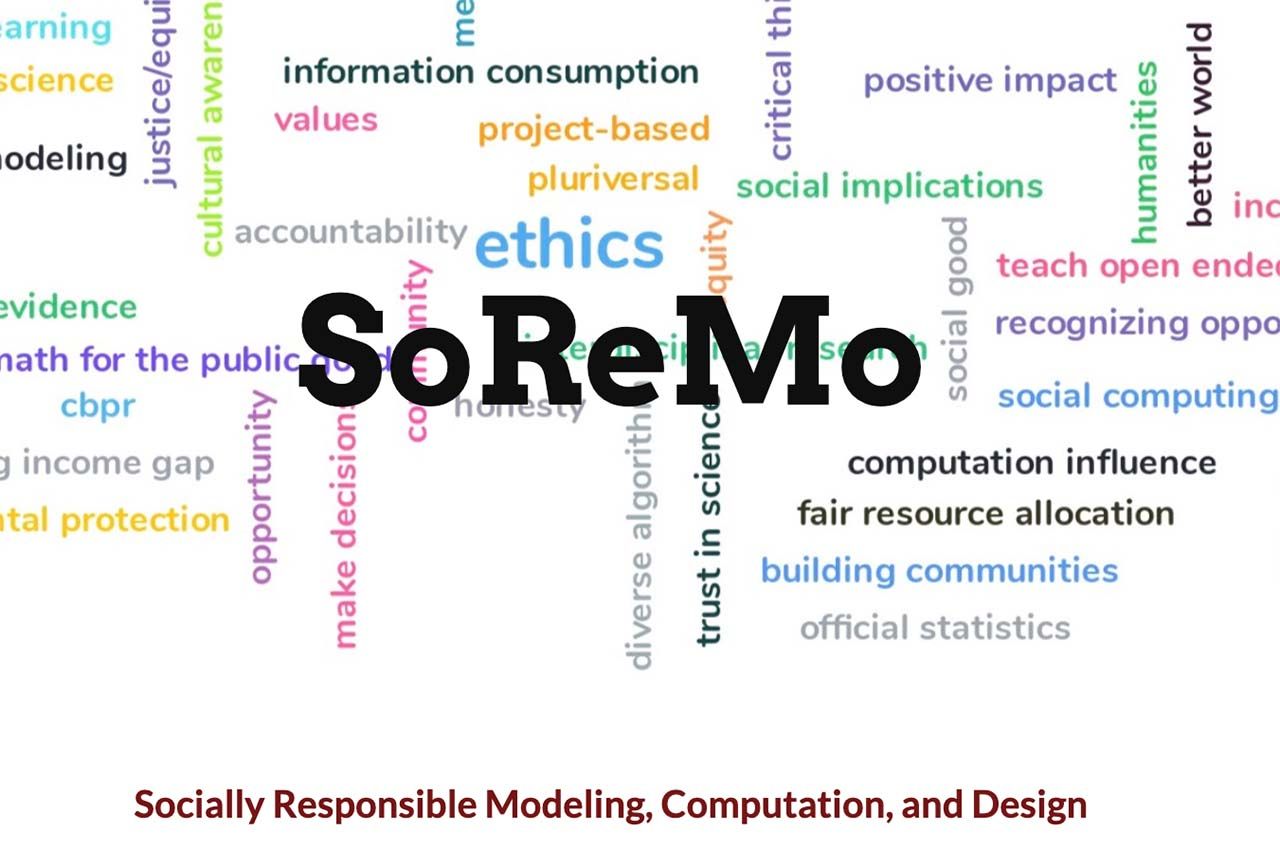Illinois Tech’s SoReMo Initiative Sponsors Pursuit of Cutting-Edge Research Projects

The Socially Responsible Modeling, Computation, and Design (SoReMo) Initiative at Illinois Institute of Technology empowers student fellows to develop and conduct semester-long research projects that have the goal of advocating “ethical, equitable approaches in computation, modeling, and design, contributing to the common good of Chicago and beyond.”
SoReMo sponsors five Illinois Tech students as fellows to pursue three research projects in different academic disciplines to address some of the issues facing society today. This semester featured projects involve the environment, and the impacts of search engines and social media.
“The SoReMo program epitomizes Illinois Tech’s commitment to project-based, interdisciplinary learning as well as its commitment to drive impact in service to humanity,” says Kenneth T. Christensen, Illinois Tech’s interim provost and senior vice president for academic affairs. “By engaging students in projects of high societal importance, the SoReMo program is cultivating our students to be purpose-driven in their endeavors.”
Md Mahmur Rahman (M.A.S. LAND 1st Year) and Caitlin Brown (ARCH 4th Year) teamed up for “An Exploration into the Necessary Transparency Needed in the Recycling Culture,” while Deana Exline (ME 2nd Year) and Natalie Brown (CS 2nd Year) addressed “Negative Health Impacts of Environmental Inequality.” Angela Petrone (DHUM 4th Year) explored an “Analysis of the Impact of Search Engines and Social Media on Decision-Making.”
Each student was granted a semester-long stipend between $1,500 and $3,000 to conduct their research and was guided by faculty advisers. The fellows were sponsored through a donation by Illinois Tech Life Trustee Joel D. Krauss (MATH ’71).
“We sincerely thank Joel Krauss for his financial support of this transformational program, which expanded access to it for a larger number of students,” Christensen says.
Two teams of SoReMo researchers turned their attentions to the environment for their projects. Rahman and Caitlin Brown sifted through plastics recycling data to find ways to increase participation. The team cited a 2018 United States Environmental Protection Agency study that said 8.7 percent of plastics are recycled, while a 2020 Greenpeace study says that five percent of plastics are recycled.
The researchers say a lack of recycling transparency and education has led to recycling and landfill management issues that have more adverse effects on minority neighborhoods in terms of air and soil quality, which contribute to declines in mental and physical health.
“The industry itself is not optimized to serve all Chicago residents,” Caitlin Brown says. “The lack of transparency and education negatively affects minority centers.”
The team has recommended an overhaul of recycling infrastructure and increased education on what can and cannot be recycled, utilizing recycled construction materials in community projects. They also suggest a follow-up study to ensure these initiatives improve participation in recycling programs.
An environmental study carried out by Exline and Natalie Brown examined redlined neighborhoods from the defunct Home Owners’ Loan Corporation’s maps, zoning laws, and existing tree canopies to draw correlations to residents’ health.
By putting the data into a ridge regression model, the researchers were able to extrapolate clear connections between redlined and yellowlined neighborhoods and adverse health conditions such as high blood pressure, asthma, cancer, kidney disease, and more.
“Redlining and yellowlining were likely to have greater impact on the model,” Exline says. “While there isn’t a linear relationship, it can be seen that in greenlined and bluelined areas, there isn’t a wide distribution of health impact values as percentages rise.”
Petrone examined the effects of online misinformation and disinformation on people’s decision-making processes. Petrone used COVID-19 to establish the way heuristics can lead to information bias. It was a daunting challenge as the subject requires knowledge in a variety of disciplines including international law, communications, data science, psychology, tech policy, and digital humanities.
Petrone noted that digital platforms enjoy a number of protections in the U.S. such as Section 230, the First Amendment, and a confused Federal Communications Commission, which allows these platforms to take the lead on curating and censoring content in the way that Google and Reddit did to stem COVID-19 misinformation.
She compared that to the robust regulation of tech platforms in Europe, which protect user data and foster a safe and accountable online environment. Petrone also noted how the rise of generative artificial intelligence will make it more confusing for users to identify misinformation.




